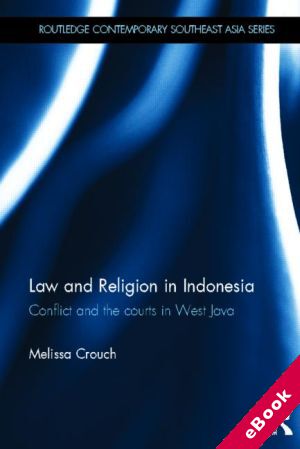We will be closed from 5pm Thursday 17th April for the Easter Bank Holidays, re-opening at 8.30am on Tuesday 22nd April. Any orders placed during this period will be processed when we re-open.

The device(s) you use to access the eBook content must be authorized with an Adobe ID before you download the product otherwise it will fail to register correctly.
For further information see https://www.wildy.com/ebook-formats
Once the order is confirmed an automated e-mail will be sent to you to allow you to download the eBook.
All eBooks are supplied firm sale and cannot be returned. If you believe there is a fault with your eBook then contact us on ebooks@wildy.com and we will help in resolving the issue. This does not affect your statutory rights.
Understanding and managing inter-religious relations, particularly between Muslims and Christians, is a matter of global concern. This book investigates disputes between religious communities in the world's largest majority-Muslim, democratic country, Indonesia. It considers how the interaction between state and religion influences relations between religious communities. The book presents case studies based on original socio-legal field research of court disputes in West Java, a majority-Muslim province with a history of radical Islam. These include criminal court cases and cases of judicial review relating to religious education, permits for religious buildings and the crime of blasphemy.
The book argues that radical Islamists have had a significant influence on law reform and the courts because of the politicization of religion under democracy. Disputes have been localized through the decentralization of power and exacerbated by the central government's ambivalent attitude towards radical Islamists who disregard the rule of law and the persistence of fears of Christianization. The findings regarding the extent to which religious minorities can have faith in the legal system have broader significance for the Muslim world, and the book is of interest to scholars of Southeast Asian politics and society and those interested in the comparative Islam, religious freedom in the Muslim world and the legal aspects of inter-religious relations.